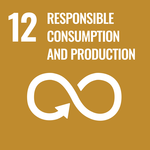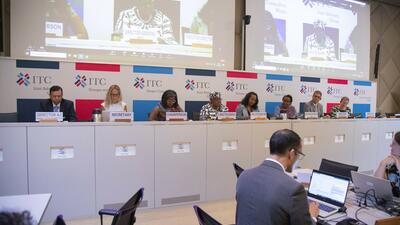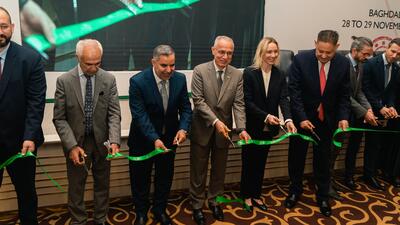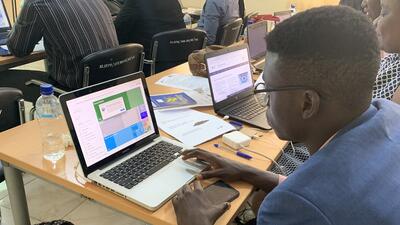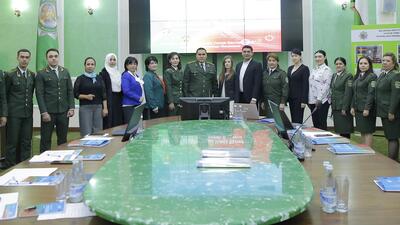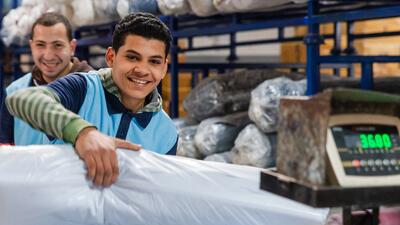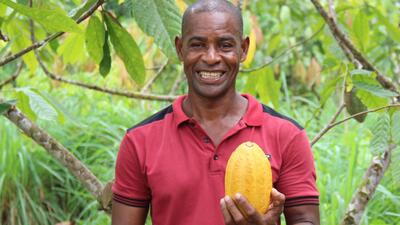
Case study: Linking buyers with green suppliers in a climate-smart network
The ‘four Cs’ – COVID, climate, conflict and cost-of-living – greatly tested small businesses around the world and set back the Sustainable Development Goals. This case study, from the ITC Annual Report 2022, highlights how the International Trade Centre helped entrepreneurs find new ways to prosperity through trade.
The challenge
The latest report by the Intergovernmental Panel on Climate Change warns that the transition to a low-carbon economy is ‘now or never’ if the world is to avoid climate disaster. Greenhouse gas emissions must peak by 2025 and then halve this decade to give the world a chance of limiting global warming to 1.5°C above pre-industrial levels by the end of the century. Unless actions intensify, current trajectories point to a temperature rise of more than 3°C – well above the Paris Agreement target of 2°C, leading to catastrophic effects for millions around the world.
Beyond the disruptions and material impacts of the climate crisis, which big and small firms are experiencing, there is a push towards building more sustainable supply chains. MSMEs and large buyers are both rethinking their approaches with a view on climate-proofing their operations and adopting ambitious climate goals and net-zero commitments. Those suppliers who have not embarked on their sustainability journey, are experiencing increased pressure from buyers to adopt low-carbon practices and comply with sustainability standards and reporting requirements.
The solution
Recognizing the critical need to support MSME visibility in this area, ITC launched the Climate Smart Network at COP27 in collaboration with the U.S. Department of State. The Climate Smart Network is an online platform that gives visibility to certified, climate-smart MSMEs and enables their identification through buyers. Thereby, the platform provides a critical link to enable climate-smart supply chains, including small businesses working to adapt to or mitigate climate change. It enables small businesses to highlight the climate-smart measures they have implemented, and their compliance with third-party standards.
By joining the network, small firms ready to take climate action can connect with some of the world’s largest buyers looking for climate-smart suppliers; pledge to lower carbon emissions through the SME Climate Hub, with specific targets and a roadmap for emissions reductions; and access tools designed to help them lower greenhouse gas emissions and/or adapt to the impacts of climate change.
The results
The initial phase of the network focused on the textile sector, for which ITC partnered with the Global Organic Textile Standard. All businesses certified by the Global Organic Textile Standard are featured on the platform, enabling buyers to identify climate-smart suppliers from emerging markets, or to check the validity of their climate credentials. Buyers keen to offset emissions can also identify Gold Standard projects and go directly to the Gold Standard marketplace to purchase carbon credits.
Since its launch in late 2022, the Climate Smart Network has achieved significant results in promoting climate-smart practices among MSMEs and connecting small firms with buyers. The network has featured about 10,000 enterprises in developing countries that are committed to a low-carbon transition. It has supported the implementation of climate-smart practices and initiatives and promoted best practices that can be scaled and replicated.
The future
The Climate Smart Network aims to feature the profiles of more than 100,000 firms in developing economies by the end of 2024. Following textiles, the platform will broaden its scope to include agroprocessing in 2023. T4SD, which supports development of the online infrastructure in collaboration with the ITC textiles team, will scale the platform and enhance outreach to new sectors, including through a roundtable of chief executives. The network plans to expand alliances with sustainability enablers such as certification bodies, standard-setting organizations and climate initiatives.
The Climate Smart Network is poised to become a powerful tool to help small and large businesses reduce their impact on the planet, support their transition to a low-carbon economy and align them with like-minded buyers.








